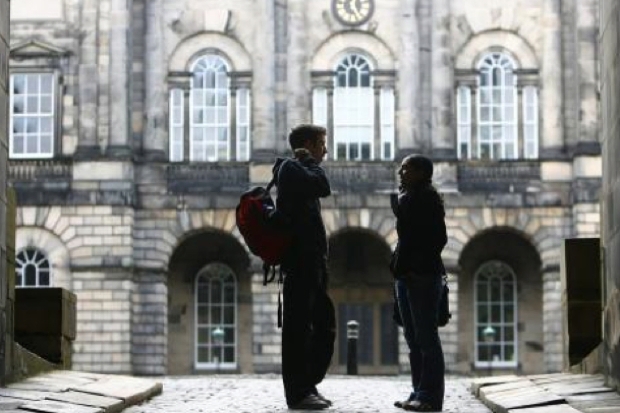The UCAS deadline for the receipt of applications for university entry this coming autumn has just passed. In terms of lifetime earnings a university degree – especially a degree from a top-drawer Russell Group university – is still excellent value for money, so thousands of students now working hard to complete their sixth-form studies will soon be waiting anxiously to see if their A-Level grades match university entry requirements.
I have some bad news for them. Some of them, who reach grades that would normally have guaranteed them a place, will nonetheless have been deliberately denied an offer, just so that others – who have not done so well at A-Level – can take their place. Why? Because some of our leading universities have been bullied and cajoled into lowering entry requirements so that students who come from what are deemed to be poor, working-class backgrounds can be awarded places at these prestigious seats of learning.
Exeter University, for example, is reported by the Sunday Times to be ready to make to such students offers of up to two A-Level grades lower than those it will make to candidates judged to come from affluent homes. Durham University has apparently also pledged to make similar ‘differential offers’. Bristol University is ready and willing to drop entry requirements by two grades for applicants from the worst-performing state schools, while King’s College London will give extra special consideration to poorer students.
These policies have been put in place in response to government demands that universities need play their part in increasing social mobility. But as I argued in a piece a year ago, whatever view we take of social mobility, this is not a problem that universities can be expected to take the lead in solving.
Giving preferential admission to students who have not made the grade in terms of A-Levels is not fair on those who have. Worse still, it is not fair on the students so admitted. The statistical facts are that students from poorer backgrounds who are awarded Russell Group places through policies such as ‘differential offers’ and the like are more likely to drop out, and less likely to achieve first class honours.
You might answer that, in that case, our top universities need to do more to support such students – perhaps by offering study-skills support packages. I can tell you that they already do so. But they cannot be expected to make up for educational deficiencies that should have been addressed at primary and secondary school levels, and by parents and guardians.
As these privileged students – privileged because the entry bar was specially lowered in their honour – struggle to work their way through their degree courses, there will inevitably be pressure to lower academic standards so as to ensure that they pass comfortably, do not drop out, and achieve top degrees. The impetus to lower standards will surely be accelerated with the imminent advent of the Teaching Excellence Framework, against which all state-funded universities will be judged. The intention of the TEF is to produce a league table of supposed ‘excellence’ in teaching and learning, and to reward financially those institutions judged to outstanding in this respect. TEF is therefore bound to increase the pressure to lower standards in order to achieve a greater proportion of good degree outcomes. Is this what we really want?






Comments